Give A Shift: Trying To Help Save The Motorcycle Industry
Kickstarting a needed conversation
Give A Shift is the punny name given to an initiative intended to forward the cause of motorcycling in the U.S. market, which is showing signs of shrinkage due to a variety of reasons: demographic, cultural, and systemic.
Spearheaded by Robert Pandya, a moto industry stalwart in public relations and marketing, GAS is bringing together all interested parties to identify problems and to come up with possible solutions. All voices are desired, from newbie millennials to veteran industry personnel and stakeholders.
The first GAS conference was held last November, with a panel of 25 individuals from diverse backgrounds, including yours truly. A follow-up gathering was assembled last week.
Flattening motorcycle sales will have a profound impact on the transpo-tainment aspects of motorcycling that we’re passionate about. Baby boomers have girded the moto market for decades, but their collective influence is dying off, quite literally. For the motorcycle industry to maintain its current sales volume, particularly here in North America, we need an influx from younger generations.
The panel heard a breadth of perceived reasons why moto sales are dwindling, which boiled down to five prevailing opinions.
1. We have a categorical desirability problem, not a product problem
2. Motorcycles can get eliminated in an autonomous vehicle future
3. Mothers and female ridership increase is critical, but real action is needed
4. Motorcyclists and industry must relentlessly self-promote to survive
5. Improvement in the dealership experience is desperately needed
Personally speaking, I also attribute a portion of blame to modern cultural dynamics affecting the latest generations of potential riders. Younger people, generally speaking, are less inclined to value personal transportation than previous generations. It’s impossible to ignore the data that kids are spending much less time outdoors than older generations. As discussed in the editorial linked below, already nearly three years old, kids are riding bicycles much less than they used to, and if they’re not riding bikes, they’re certainly much less likely to opt for relatively risky motorcycles as a transportation choice.
Additionally, it appears many younger people are using smartphones for much of their social interactions, avoiding the costs and hassles of personal transportation for years after being eligible for driver’s licenses. It’s not at all uncommon for young adults to lack licenses to drive cars, and if cars are seen as too much hassle, it’s an awfully big upcharge to get anyone committed to the extra costs and risks involved with motorcycling.
I believe kids today are disinclined to be uncomfortable, like being cold and wet/dirty on a motorbike, preferring to interact with peers via social networks in the comfort of their homes. We need to inspire a sense of adventure on two wheels that appeals to the youngsters who might be tiring of living in the virtual world.
Anyway, as Pandya freely admits, the original GAS roundtable revealed no silver bullets that will easily right the ship of motorcycles. But the prevailing point is that this is a conversation that needs to take place now. Otherwise, with fewer stakeholders and enthusiasts on the table, the moto industry will eventually be headed for an inevitable decline.
If that happens and road safety becomes the main driver in outlining transportation choices for the future, we might be facing the potential of one day being legislated out of existence. I hope that possibility frightens everyone reading this. We need an all-hands-on-deck approach to figure out ways to keep our sport relevant in the future of transportation.
Some say we need to make motorcycle use safer for riders, and that would of course be desirable for all of us. But that’s a conundrum not easily solvable, at least not for several years.
I believe the best chance of maintaining relevance in the near term is to make efforts to turn the conversation about motorcycle use toward the practical side. For streetbikes, that would involve publicizing and exploiting the commuting advantages of parking space and lane-sharing. Registration fees should be lowered to account for the negligible damage motorcycles inflict on roads relative to heavy cars and trucks. And rider training should somehow be made free of charge.
And for dirt riders, we need to find ways to open up riding opportunities in urban areas so the cost of trucks, trailers and transportation fuel doesn’t become an unbearable financial burden. Perhaps urban riding parks could be possible; they certainly could if they were accompanied by a fleet of electric motorcycles that could be rented by riders, and an e-bike park could even be an indoor facility that would enable year-round use.
I wish I had the easy answers. Any smart ideas are welcome! For example, we endorse the initiative started by industry veteran Scot Harden, the Plus-1 program, outlined in the link below.
Here’s What You Can Do To Help Save The Motorcycle Industry
In the meantime, we encourage everyone to download the GAS report linked in the release below. As Pandya says, “Here’s a conversation that needs to happen.”
We hope to hear your suggestions and concerns. Bring ’em on!
Begin Media Release
Give A Shift Clicks up the Gears in 2018: Additional panels to drill into five areas of focus
The Give A Shift About Motorcycles initiative was formed out of a desire to elevate and promote the category of motorcycling in a public manner that leverages industry experience, enthusiasm and new ideas via an “informed anonymity” round-table. With new motorcycle sales stagnating after a significant drop in 2009, and a quickly shifting consumer base and retail culture, GAS is an informed grassroots effort to facilitate a variety of solutions. The goal is to discuss issues, address some problems and develop some solutions. The initiative was seen by a considerable audience, becoming the biggest business story in the LA Times in December 2017 with over 80,000 reads of the story and thousands of downloads of the report. Additional stories and sharing of the report has spurred increasing interest. The final reports and the full and anonymous transcript from the first meeting can be downloaded at the new web hub at www.MotoGiveAShift.com for free. Additional links, a blog, photos and all future materials will be posted to this site as well.
Announced at Lucky Wheels Garage on Jan 11, 2018, the Give A Shift motorcycle industry round-table will host additional round-tables to discuss the five major take-aways from the initial meeting. With a mission to create five more sets of reports, and transcripts that delve deeper into the initial meetings output.
- We have a categorical desirability problem, not a product problem
- Motorcycles can get eliminated in an autonomous vehicle future
- Mothers and female ridership increase is critical, but real action is needed
- Motorcyclists and industry must relentlessly self-promote to survive
- Improvements in the dealership experience is desperately needed
Give A Shift will kick off the next set of roundtable events with a late spring session in New York. Additional round table events will be announced in the coming months with a goal of completing the reports and making each available by the end of August 2018. This will produce diverse and actionable information that can be used by anybody interested in the future of motorcycling going into the 2019 selling season.
“What I thought would be a very focused base for the report has grown exponentially”, says GAS founder Robert Pandya. “I feel that the interest is high enough and I have received many notes of support from a variety of people in the industry as well as well-informed enthusiasts from around the world, that committing to a complete drill-down of the five major topics is worth the work and effort. I’m very happy that so many people have taken the time to be part of the initiative and wish to be part of future panels. I encourage OEM’s, industry leadership and connected businesses to participate in the GAS panels and absorb the work.”
Give A Shift is seeking out additional leaders for the remaining panels to encourage a further diversity of voices and leadership coming out of the initiative. Panel leaders will be responsible for managing facilitation, overseeing the report and supervising transcripts coming out of the sessions. In addition GAS is seeing out facilitation sponsors who are willing to donate space, food and and resources to complete the series.
Give A Shift is a volunteer program that leans on simple but critical enthusiasm for motorcycling, riders and the genuinely positive effect that motorcycling and scootering can have on a community and an individual. The program requires voices and leadership that is reflective of the wide variety of riders. Those interested in the program can connect with Robert Pandya directly at RobertPandya@gmail.com or via www.MotoGiveAShift.com.
More by Kevin Duke



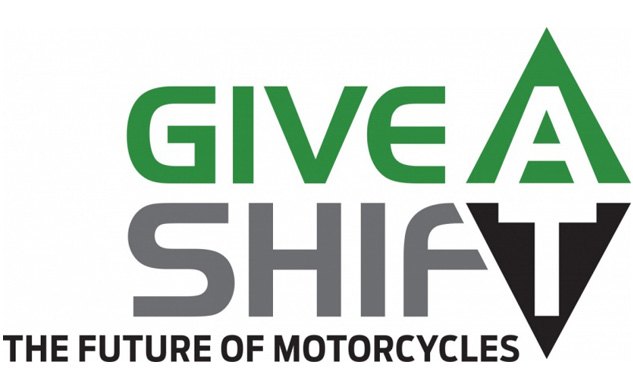

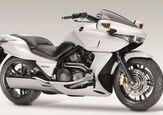


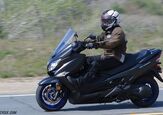











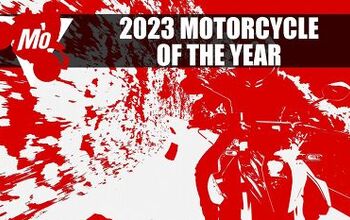



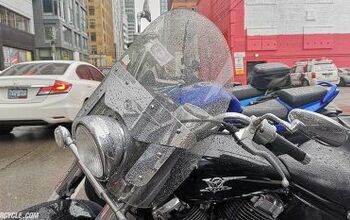
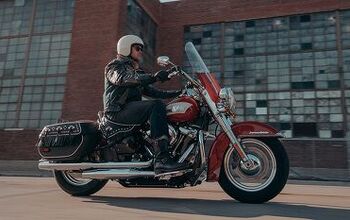
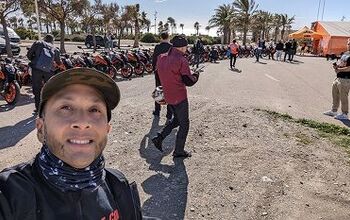
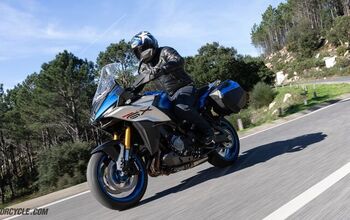
Comments
Join the conversation
Where are the motorcycles on any TV series? Where are the on/off road bikes that could go anywhere? John Ponch bike cops???
Where is the Advertising on TV? You meet the nicest people on a Honda. Why is no one promoting this?
Now it seems an entry level bike is 10 second 600!!
Cars are not cheaper to maintain or cost of operation. The real issue is the way people drive and the speed limit. Driving 70+ on the highway is a joke. You get a semi driving 75 will push you to the gutter. Peoples driving habits are the main reason I see on the highways as stupid ass people! No enforcement anywhere, this is the main problem in Wisconsin. Why do people have to drive that fast?